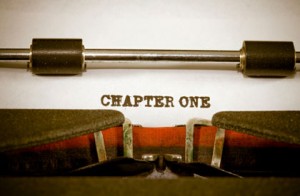 1. Read Slowly.
1. Read Slowly.
Joseph Epstein:
Most people ask three questions of what they read:
(1) What is being said?
(2) Does it interest me?
(3) Is it well constructed?
Writers also ask these questions, but two others along with them:
(4) How did the author achieve the effects he has? And
(5) What can I steal, properly camouflaged of course, from the best of what I am reading for my own writing?
This can slow things down a good bit.
2. Read a Lot.
Stephen King:
If you want to be a writer, you must do two things above all others: read a lot and write a lot. There?s no way around these two things that I?m aware of, no shortcut. . . .
It?s hard for me to believe that people who read very little (or not at all in some cases) should presume to write and expect people to like what they have written, but I know it?s true. If I had a nickel for every person who ever told me he/she wanted to become a writer but didn?t have time to read, I could buy myself a pretty good steak dinner. Can I be blunt on this subject? If you don?t have time to read, you don?t have the time (or the tools) to write. Simple as that.
3. Write to Think.
Some people won?t write until they first know what they think about a subject. But good writers write in order to find out what they think. Here are a few examples:
Calvin, citing Augustine: ?I count myself one of the number of those who write as they learn and learn as they write.?
Ed Welch: ?I find that there are three levels of clarity. When I only think about something, my thoughts are embryonic and muddled. When I speak about it, my thoughts become clearer, though not always. When I write about it, I jump to a new level of clarity.?
John Piper: ?Writing became the lever of my thinking and the outlet of my feelings. If I didn?t pull the lever, the wheel of thinking did not turn. It jerked and squeaked and halted. But once a pen was in hand, or a keyboard, the fog began to clear and the wheel of thought began to spin with clarity and insight.?
Arthur Krystal: ?Like most writers, I seem to be smarter in print than in person. In fact, I am smarter when I?m writing. I don?t claim this merely because there is usually no one around to observe the false starts and groan-inducing sentences that make a mockery of my presumed intelligence, but because when the work is going well, I?m expressing opinions that I?ve never uttered in conversation and that otherwise might never occur to me. Nor am I the first to have this thought, which, naturally, occurred to me while composing. According to Edgar Allan Poe, writing in?Graham?s Magazine, ?Some Frenchman?possibly Montaigne?says: ?People talk about thinking, but for my part I never think except when I sit down to write.? I can?t find these words in my copy of Montaigne, but I agree with the thought, whoever might have formed it. And it?s not because writing helps me to organize my ideas or reveals how I feel about something, but because it actually creates thought or, at least supplies a Petri dish for its genesis.?
4. Write and Rewrite.
?Good writing is essentially rewriting. I am positive of this.? ? Roald Dahl
?Throw up into your typewriter every morning. Clean up every noon.? ? Raymond Chandler
?If it sounds like writing, I rewrite it.? ? Elmore Leonard,?Newsweek, 1985
?I have rewritten ? often several times ? every word I have ever published. My pencils outlast their erasers.? ? Vladimir Nabokov,?Speak, Memory, 1966
?Reread, rewrite, reread, rewrite. If it still doesn?t work, throw it away. It?s a nice feeling, and you don?t want to be cluttered with the corpses of poems and stories which have everything in them except the life they need.? ? Helen Dunmore
?Don?t look back until you?ve written an entire draft, just begin each day from the last sentence you wrote the preceding day. This prevents those cringing feelings, and means that you have a substantial body of work before you get down to the real work which is all in the edit.? ? Will Self
Copyright ? 2013 by the author listed above. Used by permission.
Andrew Wiggins Amys Baking Company oj simpson chicago bulls the voice ncis how i met your mother
No comments:
Post a Comment